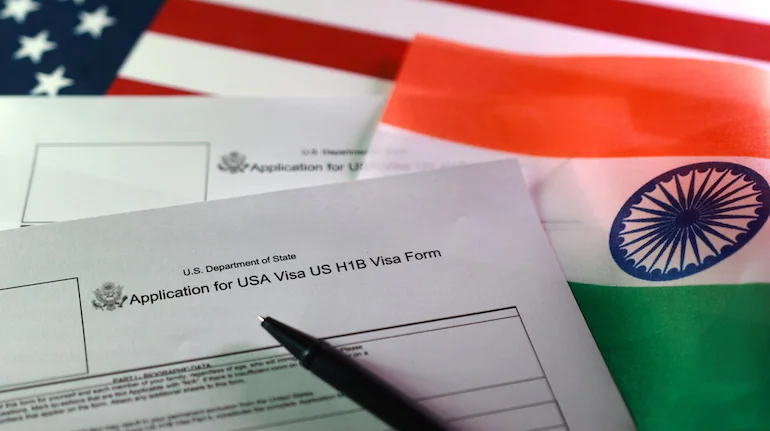Unpaid work is a significant aspect of gender inequality in Europe, where women spend on average two hours more per day than men. Differences in the gap follow regional trends, shaped by gender stereotypes and norms.
Gender inequality in the economy is evident across Europe. It manifests itself in many areas, including employment, labor force participation and pay, reports the Telegraph.
A key factor in this gap is unpaid work. In OECD countries, women do almost twice as much unpaid work as men every day.
In 23 European countries, women do on average 86% more unpaid work than men, just under twice as much.
More specifically, women spend 262 minutes a day on unpaid work, while men spend 141 minutes. This corresponds to a gap of 121 minutes, two hours each day.
The gaps in unpaid work between women and men vary greatly across European countries. Which countries show the highest and lowest gaps? What are the main reasons behind unpaid work? And why is the gap particularly large in some countries?
The gap is smallest in Sweden and largest in Turkey.
Among 23 European countries, the unpaid work gap between women and men ranges from 29% in Sweden to a staggering 349% in Turkey.
In Sweden, women spend 220 minutes a day on unpaid work, compared to 171 minutes for men - a difference of 49 minutes.
Swedish women also record the lowest unpaid work hours among all countries on the list.
Nordic countries perform better in narrowing the gap
Three other Nordic countries follow Sweden with the lowest unpaid work gaps: Denmark (31%), Norway (35%) and Finland (50%).
After Turkey, which stands out, where women do 3.5 times (349%) more unpaid work than men, the other highest gaps appear in Southern Europe: Portugal (242%), Greece (173%) and Italy (134%). Spain also ranks high, in seventh place, with a gap of 98%, meaning women do almost twice as much unpaid work as men.
How much more unpaid work do women do compared to men?
The OECD report on Gender Equality in a Changing World finds that "unpaid work acts as a barrier to paid work for some women, keeping them out of the labour market."
It is no coincidence that Turkey has the lowest labor force participation rate in 2024 at 37%, compared to the EU average of 53%, according to the OECD. Italy follows at 42% and Greece ranks fourth at 45%. These countries also report the highest gender gaps in unpaid work.
Caregiving responsibilities and social norms
Dorothea Schmidt-Klau, chief of the employment, labour markets and youth branch at the ILO in Geneva, explained to Euronews Business why Turkey and Italy rank higher in Europe for the share of "people available to work but not looking".
"Caregiving responsibilities and social norms are two other factors that play a role, especially in Turkey," she said.
"Limited access to affordable childcare and eldercare services, coupled with social attitudes regarding women's roles, reduce women's ability to engage in active job search," she added.
As a result, she said female participation rates here are among the lowest in OECD countries.
Among Europe's five largest economies, Italy and Spain perform worst, while Germany shows the smallest gap at 61%, followed by France at 66% and the United Kingdom at 78%.
Women spend 5 hours of unpaid work in 3 countries
In Portugal (328 minutes), Italy (306 minutes) and Turkey (305), women do more than five hours of unpaid work.
This is also more than 3.5 hours in Sweden, which has the lowest unpaid work time. France comes in second, where women spend 224 minutes in unpaid work.
Turkish men do the least unpaid work: just 68 minutes
It is no surprise that men spend less time on unpaid work in the three countries with the widest gaps. Turkey is an exception, where men devote only 68 minutes a day to unpaid work, followed by Greece with 95 minutes and Portugal with 96 minutes.
Most unpaid work is routine domestic work
In every country, for both women and men, routine household chores make up the largest share. In some countries, they account for more than 70% of daily unpaid time.
Caring for family members and shopping follow, and together the three main categories represent about 90% of all unpaid work, according to the OECD.
In Portugal, for example, women spend 253 of their 328 unpaid daily minutes on housework, which corresponds to 77%. In France it drops to 70% and in Denmark to 60%.
How to reduce the gender gap
The OECD highlights the role of "norms and stereotypes" in driving inequalities, noting that these are learned from a young age.
The report calls on countries and the European Commission to take stronger action to narrow the gender gap in unpaid work. Some key recommendations below directly address the factors that underpin this gap.
Promoting equal sharing of care and household responsibilities between women and men, including challenging gender stereotypes and norms (through awareness-raising campaigns, educational materials, etc.).
By offering both mothers and fathers individual rights to paid leave.
Expanding equal access to hybrid and remote work by investing in digital infrastructure and training.
Investing in affordable, accessible and high-quality early childhood education and care, as well as after-school care.
Improving wages, job quality and formalizing female-dominated care professions, while also encouraging men to enter care-related careers. /Telegraph/
[SRC] https://telegrafi.com/en/Unpaid-work-in-Europe%3A-which-countries-have-the-biggest-gender-gaps/
 Visit the website
Visit the website







